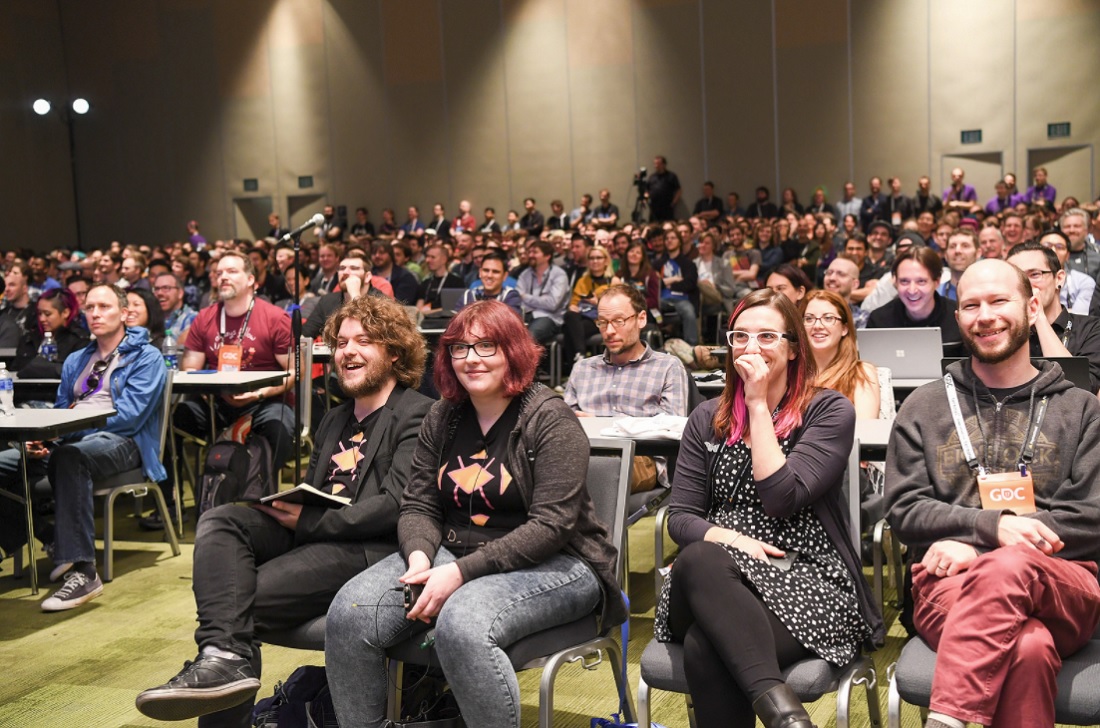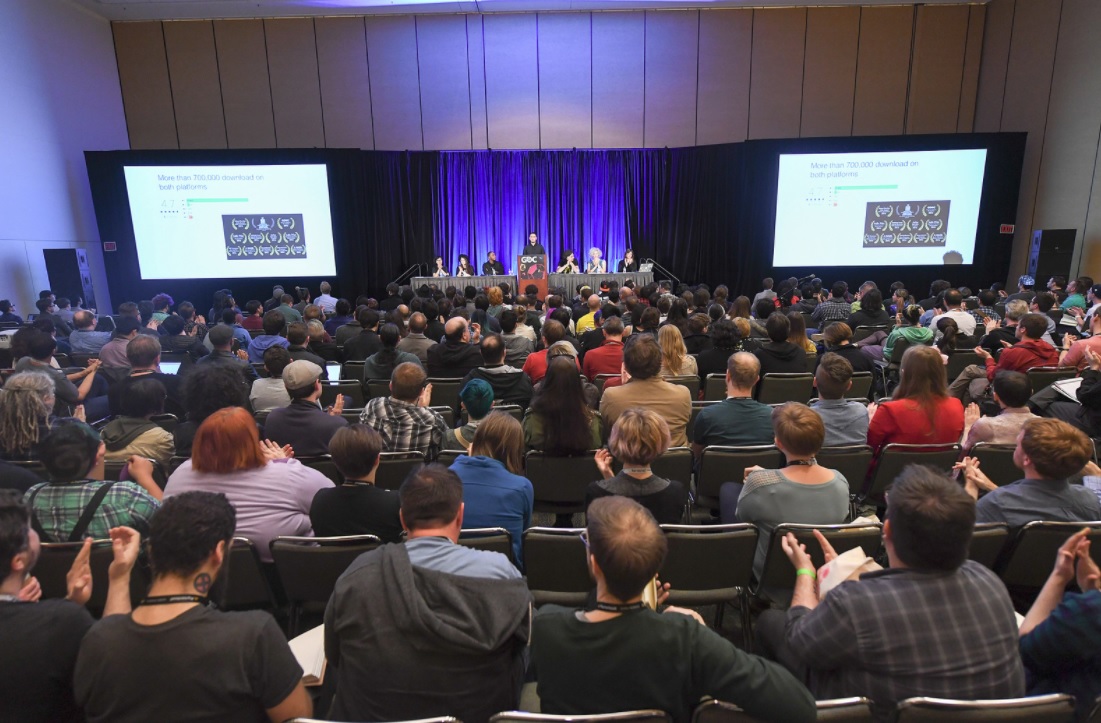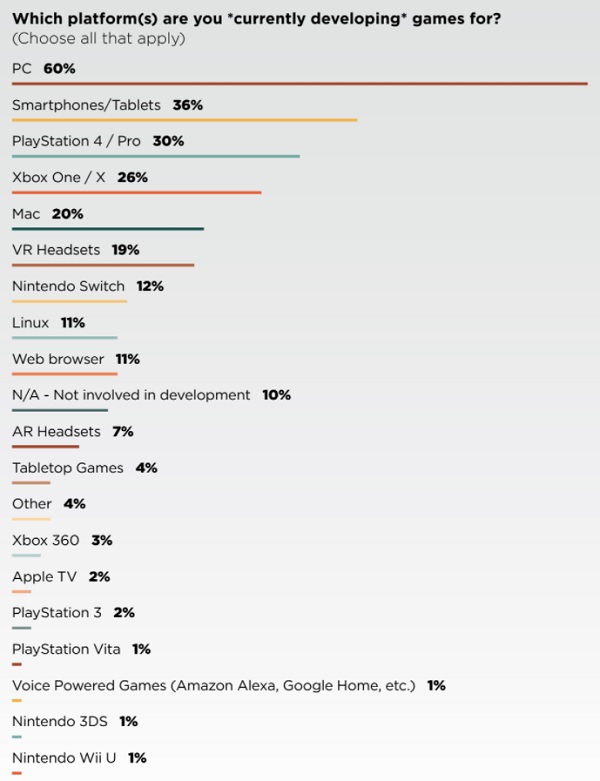Game developers are in love with the Nintendo Switch, and they’re making four times as many games for the hybrid home and portable console as they were last year, according to a survey by the Game Developers Conference.
The survey of 4,000 game industry professionals found that 12 percent are making the current games for the Switch in 2018, compared to 3 percent in 2017. Fifteen percent say they are making their next game on the Switch. That’s one of the biggest swings in support for a new platform, said Simon Carless, a vice president at UBM Technology, which owns the GDC.
“The Switch is one of the banner takeaways, though the PC is strong,” Carless said. “It’s relatively rare to see things swing so much.”

Above: A GDC 2017 crowd
But the overwhelming number of developers are supporting the PC. About 60 percent of developers say they are making PC games. Thirty-six percent are making smartphone or tablet games, 30 percent are making games for the PlayStation 4, and 26 percent are making games for the Xbox One.
June 5th: The AI Audit in NYC
Join us next week in NYC to engage with top executive leaders, delving into strategies for auditing AI models to ensure fairness, optimal performance, and ethical compliance across diverse organizations. Secure your attendance for this exclusive invite-only event.
The PC showed strong growth in 2018, up from 50 percent in 2017, and only a slight drop for the “next game” to 58 percent. Smartphone development was at 32 percent in 2017 and 36 percent in 2018, but it is slipping to 32 percent for the next game developers are working on. The PS4 support is also dropping in the next generation from 30 percent in 2018 to 23 percent in the next generation, while Xbox One support is dropping from 26 percent in 2018 to 19 percent.
“If the PC and console markets are tough, mobile is even tougher,” Carless said. “The larger players are spending money on user acquisition and they’re getting an advantage.”

Above: The crowd at GDC 2017.
Virtual reality is also losing favor. In 2017, 15 percent of developers were making VR games. That rose to 19 percent in 2018, but it is dropping to 15 percent for the next game. That’s consistent with the notion that the first VR headsets weren’t as successful as hoped, Carless said.
In 2017, only 3 percent of developers were making games for augmented reality. That rose to 7 percent for 2018, and it is holding steady at 7 percent for the next game.
Asked which platform interested them the most, 59 percent said the PC. Thirty-nine percent said the PS4, 36 percent said the Switch, 33 percent said VR headsets, and 30 percent said smartphones. Twenty-eight percent of developers said their games sold better on the Switch than other consoles, while 16 percent said they sold less well.

Above: The crowd at GDC 2017.
In other findings, only one in 10 developers (11 percent) plan to support “loot boxes” in their games. Loot boxes are containers of virtual items that players can purchase for a fixed price (or receive as a reward), but they became controversial in 2017 as Electronic Arts angered gamers by pushing them to buy loot boxes to get the best high-profile characters in Star Wars: Battlefront II. By comparison, about twice as many developers (23 percent) say they will use paid downloadable content (DLC) in their games.
For the most part, developers liked traditional business models. 49 percent favored pay to download, and 39 percent said free to download. 22 percent said in-game items would be used in their games.
The GDC will take place March 19 to March 23 in San Francisco this year, and it is expected to draw around 26,000 visitors. The survey was based on interviews with mostly European and North American users.

Above: The list of game platforms that game developers are currently using.
For the third year in a row, the survey asked respondents whether they believe VR/AR is a long-term, sustainable business, and for the first time, the 2018 survey sees a rise in the number of “no” answers. In the past two years, the responses to that question were roughly 75 percent “yes” to 25 percent “no.” However, this year, 71 percent of respondents said “yes” and 29 percent said “no.”
By comparison, 91 percent said they believed esports has a strong long-term future. Lastly, 14 percent have worked on a crowdfunding project, and 24 percent will do so in the future.

